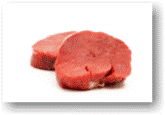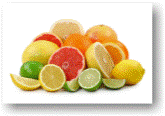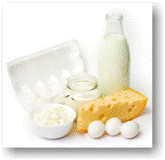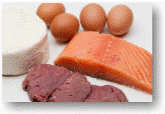Good nutrition speeds up your recovery time and lowers your risk of infection. You can use Canada’s Food Guide to Healthy Eating to help choose healthy foods. Your diet should contain plenty of fruits, vegetables, whole grains, dairy products, fish and lean meats.
Having a full and balanced diet before surgery will give your body the nutrients, vitamins, minerals, fibre and anti-oxidants that it needs for your recovery. Use this list to make sure you are getting the nutrition your body needs for a healthy recovery from surgery:

- Iron - a key component of hemoglobin. Get ready for your surgery by building up the iron in your blood. Hemoglobin carries oxygen to the tissues to help the healing process. A low hemoglobin level can cause anemia and make you tired, which could delay your recovery time.
Sources: liver, red meat, fish, poultry, leafy green vegetables, fortified cereals, lentils, beans, and iron supplements. 
- Vitamin C – to control the symptoms of osteoarthritis. Vitamin C also helps your body use iron.
Sources: strawberries, oranges, kiwi, grapefruit, tomatoes, peppers, and vitamin supplements.
- Folate and vitamin B12 are found in the above foods and also in dried peas, beans, grains as well.
- Vitamin D – to help with absorption of calcium, and slow the progression of osteoarthritis.
Sources: Milk, fortified milk substitutes, salmon, mackerel, sardines
vitamin supplement (400-1000 IU). 
- Calcium – to grow and maintain strong, healthy bones. You should consume about 1200 mg/day. Some people take calcium supplements purchased over the counter at your local drugstore. Ask for a recommendation from your family doctor or surgeon.
Sources: one cup of milk (300 mg), 3/4 cup plain yogurt (300 mg), cheese, canned salmon, sardines and supplements (1000-1500 mg).
- Omega-3 Fatty Acids - to control swelling of sore and damaged joints.
Sources: Fatty Fish (e.g. sardines, salmon, trout, herring ,mackerel), Omega-3 eggs, flax seed and flax oil, and omega 3 supplements
- Fibre and water - to avoid constipation associated with surgery.
Sources: Whole grain cereals and breads, fruit and vegetables, and consume 25-35 gm of fibre per day and 8 cups (2 l) of fluids. 
- Protein – is used in muscle conditioning that you will be doing before and after your operation. You will need 20-50% more protein during healing. This can be achieved by eating 3 meat/alternate and 3 milk products each day.
Sources: Meat, nuts, peanut butter, milk and milk products and eggs.
You can also talk to your family doctor or a dietician (call 902-835-0253 or email info@nsdassoc.ca to ask about licensed dieticians and nutritionists in NS), if you need help with managing your diet.
To find more information on nutrition, see Canada’s Food Guide: www.healthcanada.gc.ca/foodguide, and visit the Dietitians of Canada Website.